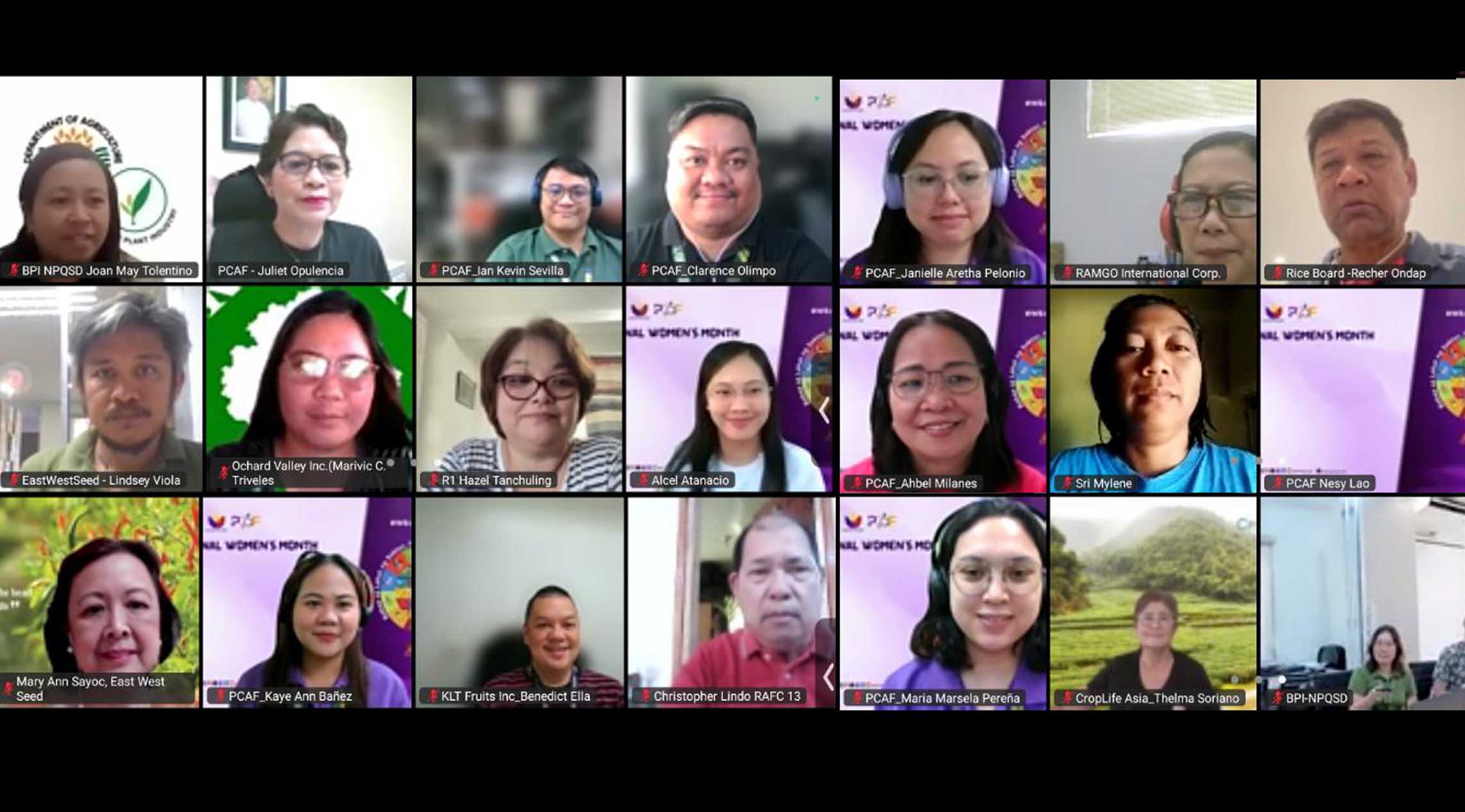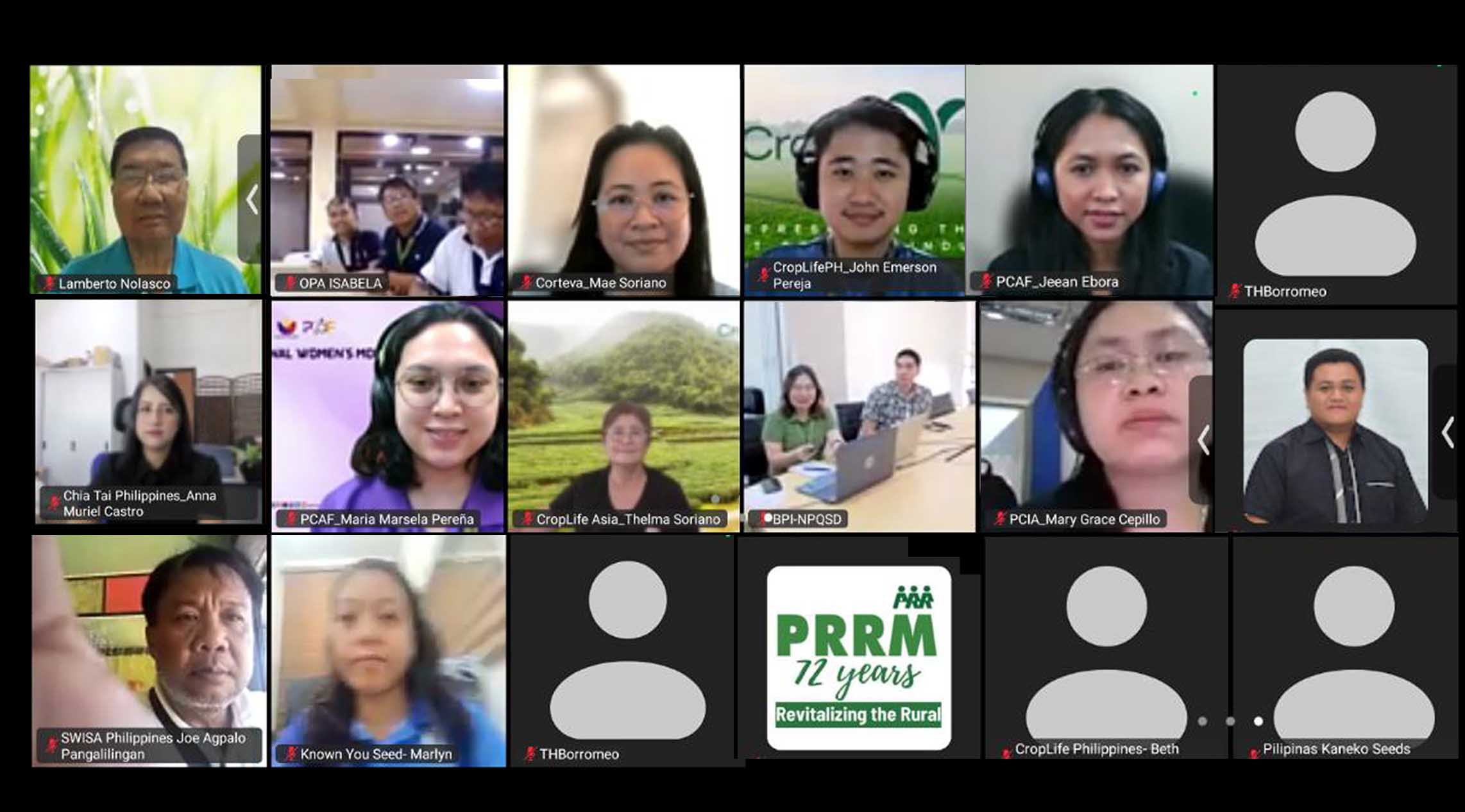
Through the Philippine Council for Agriculture and Fisheries (PCAF), the Bureau of Plant Industry (BPI) sought the expertise of the National Sectoral Committees (NSC) on a public consultation on March 28 2025, to finalize the “Guidelines governing the phytosanitary requirements for international movement of seeds for planting and research purposes.”
The consultation, aimed at harmonizing local regulations with international standards, was attended online by over 50 private and government stakeholders.
The private sectors include representatives from the NSC on Rice and Other Staples, NSC on Fruits and Vegetables, NSC on Coffee and Cacao, and NSC on Corn and Other Feed Crops.
The guidelines seek to streamline the process of determining phytosanitary requirements for internationally moved seeds based on their intended purpose and past risk assessments.

This initiative addresses the complexities of international seed trade, particularly concerning seed-borne pests and seed origins, and aims to ensure effective management of phytosanitary risks.
BPI National Plant Quarantine Services Division (NPQSD) Chief Joan May Tolentino emphasized the importance of aligning local regulations with the Commission on Phytosanitary Measures’ adopted international standards, specifically International Standards of Phytosanitary Measures (ISPM) No. 38.
“We are translating international standards into our local regulations to ensure harmonization with International Plant Protection Convention (IPPC) member countries,” said NPQSD Chief Tolentino.
The BPI also stressed that the movement of seeds is crucial for global agriculture but requires stringent regulations to prevent the spread of harmful pests and diseases. The public consultation is a critical step towards safeguarding the nation’s ecosystems, agricultural industries, and food security while facilitating safe and efficient seed movement.
The policy’s journey began in 2017 with the adoption of ISPM 38, with several stages of review and stakeholder consultation.
In July 2023, the Plant Quarantine Board, which included the Department of Agriculture’s (DA) Legal team, National Economic and Development Team, Philippine Ports Authority, and Bureau of Quarantine, conducted a review of the policy. This was followed by a second face-to-face stakeholder consultation with the seed industry on March 1, 2024, and a review by the DA Regulatory Clearing House Committee on September 9, 2024.
Key features of the updated draft guidelines include:
- Extension of the Sanitary and Phytosanitary (SPS) import clearance validity from 60 to 180 days.
- Changes in pest risk analysis procedures for seeds.
- Modifications to import conditions for planting and research seeds.
- Export restrictions for traditional seed varieties, rare species, lines, or strains, consistent with Republic Act 7308 and DA Circular No. 17, Series of 2020.
The DA Regulatory Clearing House Committee recommended further revisions, another round of public consultation via PCAF, and the submission of a Preliminary Impact Statement to the Anti-Red Tape Authority.
Tolentino expressed his gratitude to PCAF and the NSCs for their assistance in organizing the consultation.
“We are here to seek the invaluable inputs and the final concurrence as industry stakeholders to ensure that the guidelines reflect the collective interests and needs of all parties involved,” she added.
Meanwhile, PCAF OIC Executive Director Julieta Opulencia thanked BPI for trusting the agency in facilitating the consultations and discussions.
She also encouraged other DA bureaus and attached agencies developing guidelines that impact farmers, fishers, and other stakeholders to utilize their consultative bodies, to ensure participatory governance, and to hear diverse perspectives from the agri-fishery sector. | Jezebel Campaniel











